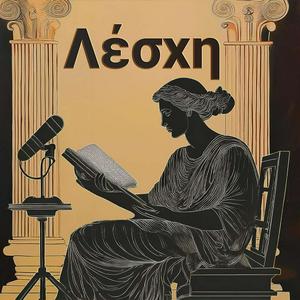Piero Boitani joins me in the Lesche to discuss his new book Timaeus in Paradise: Metaphors and Beauty from Plato to Dante and Beyond (Princeton University Press 2025).
Ancient texts
Hebrew Bible, Genesis
Plato: Timaeus, Phaedrus, Symposium, Apology
Aristotle: Nicomachaean Ethics
Lucretius, De Rerum Natura
Ovid, Metamorphoses
Philo of Alexandria, On the Creation (de Opificio mundi: treatise on the Genesis creation narrative)
New Testament: Acts of the Apostles
Pseudo-Longinus, On the Sublime
Calcidius, Latin translation of much of Timaeus (4th century CE)
Pseudo-Dionysius the Areopagite, mystical treatises (c. 500 CE)
Later sites of reception & influence
In Literature and Philosophy
Johannes Scotus Eriugena (John "the Scot"), translation of Pseudo-Dionysius the Areopagite (9th century)
Thomas Aquinas, Commentary on the Divine Names (1260s)
Dante, Paradiso (early 1300s)
Marsilio Ficino's work on Plato and Timaeus (15th century)
Johannes Kepler (1571-1630), scientific treatises
Alfred North Whitehad, Process and Reality (1929)
Ezra Pound, Cantos (1915-1959)
In Visual Art and Architecture
Raphael, "School of Athens" (1509-11, Apostolic Palace, Vatican) and Chigi Chapel (1510s, Santa Maria del Popolo, Rome)
Michelangelo, Sistine Chapel (1508-1512)
Botticelli, "Birth of Venus" (mid-1480s)
Crypt of San Magno in Anagni (11th century)
Sculptures of Chartres Cathedral (12th century)
About our guest
Piero Boitani is Professor Emeritus of Comparative Literature at the University of Rome “Sapienza.” A Fellow of the British Academy, the Medieval Academy of America, the Accademia dei Lincei, and the Italian National Institute of Astrophysics, in 2016 he received the Balzan Prize for Comparative Literature. He is chairman of the Fondazione Lorenzo Valla and general editor of its series of Greek and Latin Writers.
His most recent books include Il grande racconto dei classici (Bologna, Il Mulino, 2024); «Reconnaître est un Dieu». L’anagnorisis dans la littérature occidentale (Paris, Garnier, 2025); Timaeus in Paradise: Metaphors and Beauty from Plato to Dante and Beyond (Princeton University Press 2025). A new book, The Five Elements-I cinque elementi, with a preface by Stephen Greenblatt, will be published by Mondadori, in the Lo Specchio series, in February 2026.
________________________________
Thanks for joining us in the Lesche!
Podcast art: Daniel Blanco
Theme music: "The Song of Seikilos," recomposed by Eftychia Christodoulou using Sibelius
This podcast is made possible with the generous support of Brown University’s Department of Classical Studies and the John Nicholas Brown Center for Advanced Study.
Instagram: @leschepodcast
Email:
[email protected]Suggest a book using this form


